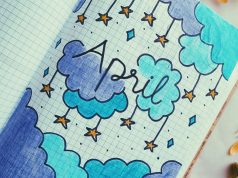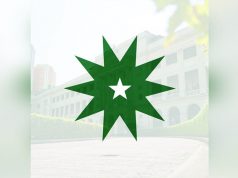Actor and vlogger Vince Vandorpe was slammed by some social media users for his video where he pranked his friend by saying he was homosexual as an April Fool’s joke.
In the video, Vandorpe was with Patrik Franksson, a Filipino-Swedish football player and model.
The actor said that he “always had this attraction towards guys” since he was young. He also grabbed Franksson’s wrists and implied that he wanted something.
Pranked @patfranksson , confessed my love to him. HAHA 😂 Happy April Fools day! ✨ pic.twitter.com/ZkESSW8u0l
— Vince Vandorpe (@vincevandorpe) April 2, 2019
Franksson never believed it at first but he commented on Vandorpe’s video that he was “so confused” at his friend’s supposed confession and wanted to be “serious and understanding” about it.
“I WAS SWEATING SO MUCHHH MY HEART WENT THROUGH THE ROOF, DON’T DO THIS TO ME (with emoji) You know I gotchu with whatever you do or whoever you are but this prank… Expect something back, just wait hahaha,” Franksson wrote.
While both of them found it amusing, some Twitter users shared that such a joke is insensitive to those who have actual struggles about coming out or admitting that they are homosexual, particularly to their family.
“hi!! some people don’t find this funny AT ALL. coming out is and will never be a good joke/prank. closeted people find it so hard to come out to relatives/friends, but you can easily do and joke about it bc (because) ur (you’re) a privileged straight guy,” a Twitter user said.
“You guys are lucky you don’t need to ‘come out’ and explain yourself for being you. Sensitivity goes a long way. Too bad you guys don’t see our struggles as somewhat of a big deal to be at least treated with a little respect,” another user wrote.
Coming out is a serious process
Majority of LGBT members have admitted that coming out is a very challenging experience for them. A survey conducted by Pew Research Center noted that it is mostly “difficult” for them to come out to their parents.
“For lesbians, gay men, bisexuals and transgender people, realizing their sexual orientation or gender identity and sharing that information with family and friends is often a gradual process that can unfold over a series of years,” the report notes.
It added that it is an “important milestone” for LGBT members to especially share the information to their parents.
“Overall, LGBT adults are more likely to have shared this information with their mothers than with their fathers,” the report continues.
59 percent of foreign LGBTs considered it challenging to come out to their mother while 65 percent found it difficult to admit it to their father.
The survey added that gay men and lesbians are “more likely” to find it difficult to open up and admit their sexual orientation than bisexuals.
A lesbian featured in a column on an Irish news website confessed that she found it difficult to come out since she was afraid of “losing the people (she) loves.”
“It’s still the fear of losing long-loved friends and family that stops me taking the plunge and coming out. If it goes wrong, which it could, there’s no going back!” she wrote.
“They are your safety net, your link to your past, and coming out may be the act of wilfully destroying them, which is a lot to give up,” she added.










